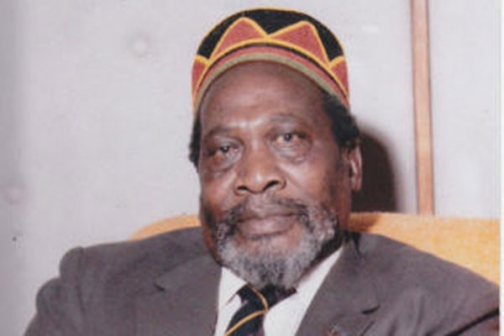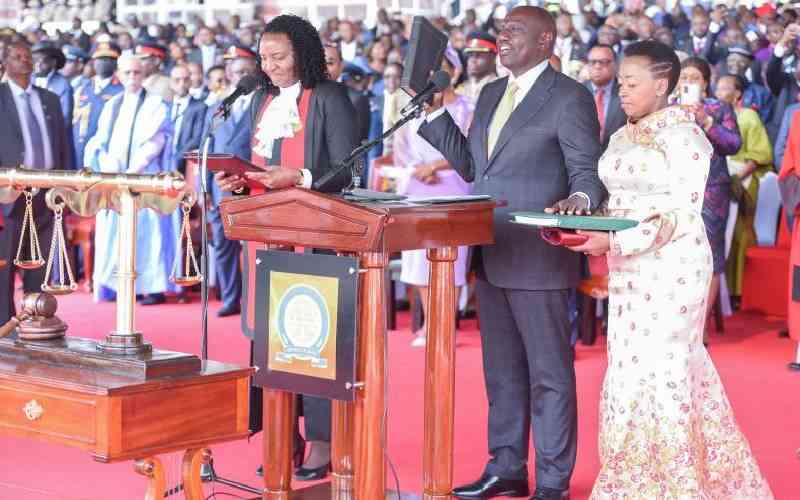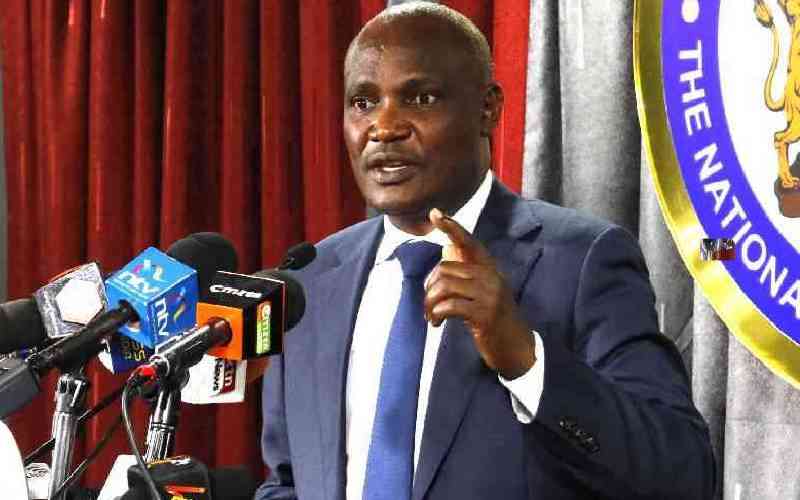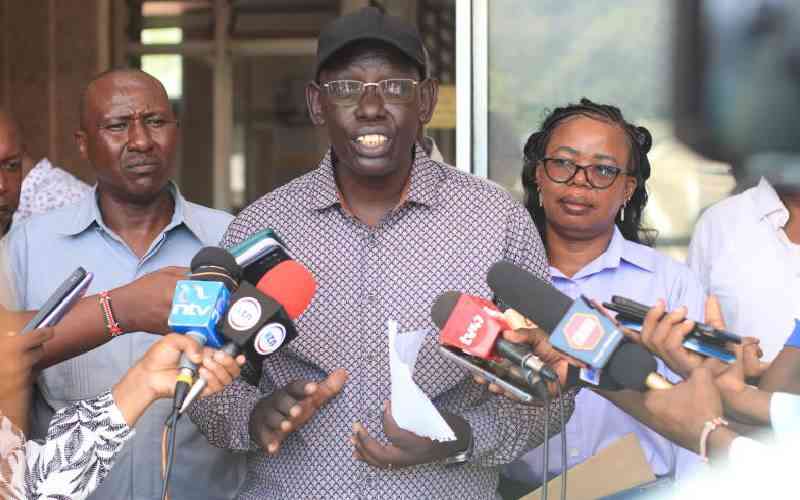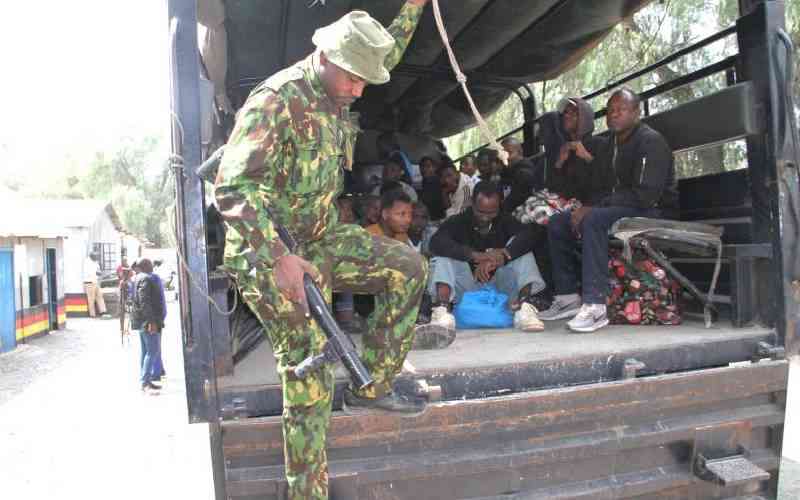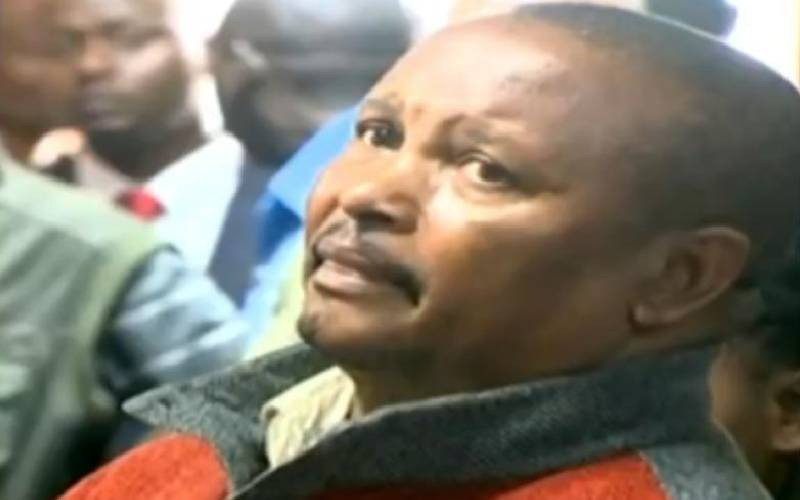Hussein Abdalla, a 77-year-old resident of Shauri Moyo, remembers the day he received news of the death of Mzee Jomo Kenyatta, the country’s founding father. He was at his place of work at Kariokor Market, selling his wares, when the one o’clock Voice of Kenya (VOK) radio bulletin broke the sad news.
A wave of shock, uncertainty, disbelief and grief engulfed Kariokor Market, Mr Abdalla vividly remembers. “People huddled in groups of three, four and five speaking in low tones when we received the sad news that day. So revered was Mzee Kenyatta that we could not see Kenya without him,” Abdalla remembers that day, 38 years ago.
Abdalla knew Mzee Kenyatta, Kenya’s founding President, from a distance.
Those who knew him at close range and those who had the opportunity to work with him respected Mzee Kenyatta as a great man of enormous influence and outstanding ability. One such person is Major (Rtd) Marsden Madoka, who served the nation’s founding father as an Aide-de-Camp (ADC).
Major Madoka says Mzee Kenyatta was fatherly, loving, caring and a person who appreciated what people did for him and for the nation. But he was also thorough and a stickler for perfection and discipline, Maj Madoka says.
Interviewed at his Karen home, the retired soldier says “Mzee was very thorough. He interviewed me himself for the job. In the past the ADCs were not interviewed. They were appointed by the Army Commander and told to go. But this time, Mzee insisted on interviewing his candidates.”
He adds: “I was the tenth one to be interviewed and he picked me. That, in itself, was a great privilege to me but it also went a long way in saying how thorough Mzee was.”
Maj Madoka points out that although he was initially awe-stricken, working for the Head of State, Mzee Kenyatta treated him like a son. Through the confidence he showed in him, Madoka felt comfortable working for Mzee Kenyatta.
And as he continued to serve as ADC, other qualities of the founding father emerged. Madoka learned that although people feared him, Mzee Kenyatta was a very patient and understanding person. He was also a person who respected the views of other people.
Days passed very fast, and the initial six-month period that was set for ADCs to serve the Head of State in those days passed. Because Mzee Kenyatta liked him, he asked Madoka to stay another six months.
But Madoka — who was then in his 20s — wanted to go back to the barracks, develop his army career and get promoted. He hinted to Mzee Kenyatta, who had grown quite fond of him, that he wanted to go back to the army.
It was difficult for Mzee Kenyatta to let go a person he had come to like, but because the founding father respected the views of other people, he allowed Madoka to go back to the army.
“So you can see that Mzee was understanding and he respected the views of others including those serving under him. He gave me the opportunity to do what I wanted,” Madoka says.
Mzee Kenyatta valued friendship. Madoka recalls that the late Paul Ngei had been fired for some mistake he had made, but Mzee did not want to relieve him of his duties because they had been in detention together.
“There was that bond of friendship between the two of them. Mzee did not quite want to let him go. So you can see he is a man who cared for his friends, for the people who had helped him. That is one aspect that many people were not quite appreciative of,” Madoka says.
But he maintains it is unfortunate that people misunderstood Mzee Kenyatta. Contrary to the perception many people had, Mzee was not harsh. He was actually a very kind and understanding person.
Madoka concludes: “Occasionally, of course, in some public barazas Mzee would say some harsh words but as President, Mzee addressed the issues which faced the nation.”
Mzee Kenyatta wanted to see a very progressive country. He wanted to see that Kenya was well developed. He wanted to see that people had improved their way of life.
“When he was telling people to go back and plough their land instead of just hanging around, I think it is because he wanted to see a country where people were educated and where people had proper health facilities. His vision was to see a well-developed country where all Kenyans were well taken care of,” Madoka says.
According to Madoka, Mzee Kenyatta’s legacy was to see Kenyans working together. The founding father believed that the country could not progress if people were divided.
“Mzee wanted to see a Kenya where all of us looked at ourselves as Kenyans. So we pray that going forward, we will think of ourselves as Kenyans first instead of our tribes,” Mr Madoka says.
On her part, Mrs Elizabeth Mumbi Madoka, who served the first President and his family as a social secretary, says Mzee Kenyatta loved his family and always created time for them despite his busy schedule as Head of State.
Mumbi also commends the founding father’s motto of Harambee as a driving force that saw the implementation of many projects during the country’s infant stages.
“I think the Harambee spirit was very good because at that time everything was new. But with the Harambee spirit, we were able to help one another and build schools, roads and other projects,” Mumbi says.
She says Mzee Kenyatta also encouraged people to work hard rather than rely on handouts.
“He believed that for the country to progress, people had to work hard, earn their living and not wait for handouts from the Government,” Mumbi says.
She says Kenyans loved Mzee Kenyatta and could not believe that he had died when they received the news. As proof of their love and loyalty to the founding father, many people lined up to view his body at State House, Nairobi.
Mrs Wanjiru Macharia is one of those who thronged State House to pay her last respects to the founding father. She remembers queuing for hours to get a glimpse of the body which lay in state at State House. She had woken up early and walked from her home in Thogoto so that she could be among the first people to view the body of the founding father of the nation but that was not to be. By the time she got to State House at 6.30 am, the queue was very long.
“We loved and respected our President, the father of the nation. We were filled with epic grief. We had to pay our last respects to him,” Wanjiru says from her home in Thogoto.
She adds: “Many many people came to have a last glimpse at our beloved leader. Some walked, others travelled by bus from all corners of the country.”
Mzee Kenyatta died on August 22, 1978 at around 2.30 am at State House, Mombasa. Later that day, his body was flown to State House, Nairobi where it lay in state for eight days. It is estimated that close to 720,000 people viewed the body in those eight days, with about 90,000 viewers each day.
As Mzee Kenyatta’s family, led by President Uhuru Kenyatta, lays wreaths at his mausoleum next to Parliament Buildings in Nairobi on Monday, and later hold a memorial service at Holy Family Basilica, Kenya will be honouring an icon, a great leader and a legend who paved the way for all that is great in Kenya today.
All Kenyans are invited to join the first family at the Holy Family Basilica for the commemoration service at 10am.
 The Standard Group Plc is a
multi-media organization with investments in media platforms spanning newspaper
print operations, television, radio broadcasting, digital and online services. The
Standard Group is recognized as a leading multi-media house in Kenya with a key
influence in matters of national and international interest.
The Standard Group Plc is a
multi-media organization with investments in media platforms spanning newspaper
print operations, television, radio broadcasting, digital and online services. The
Standard Group is recognized as a leading multi-media house in Kenya with a key
influence in matters of national and international interest.
 The Standard Group Plc is a
multi-media organization with investments in media platforms spanning newspaper
print operations, television, radio broadcasting, digital and online services. The
Standard Group is recognized as a leading multi-media house in Kenya with a key
influence in matters of national and international interest.
The Standard Group Plc is a
multi-media organization with investments in media platforms spanning newspaper
print operations, television, radio broadcasting, digital and online services. The
Standard Group is recognized as a leading multi-media house in Kenya with a key
influence in matters of national and international interest.

